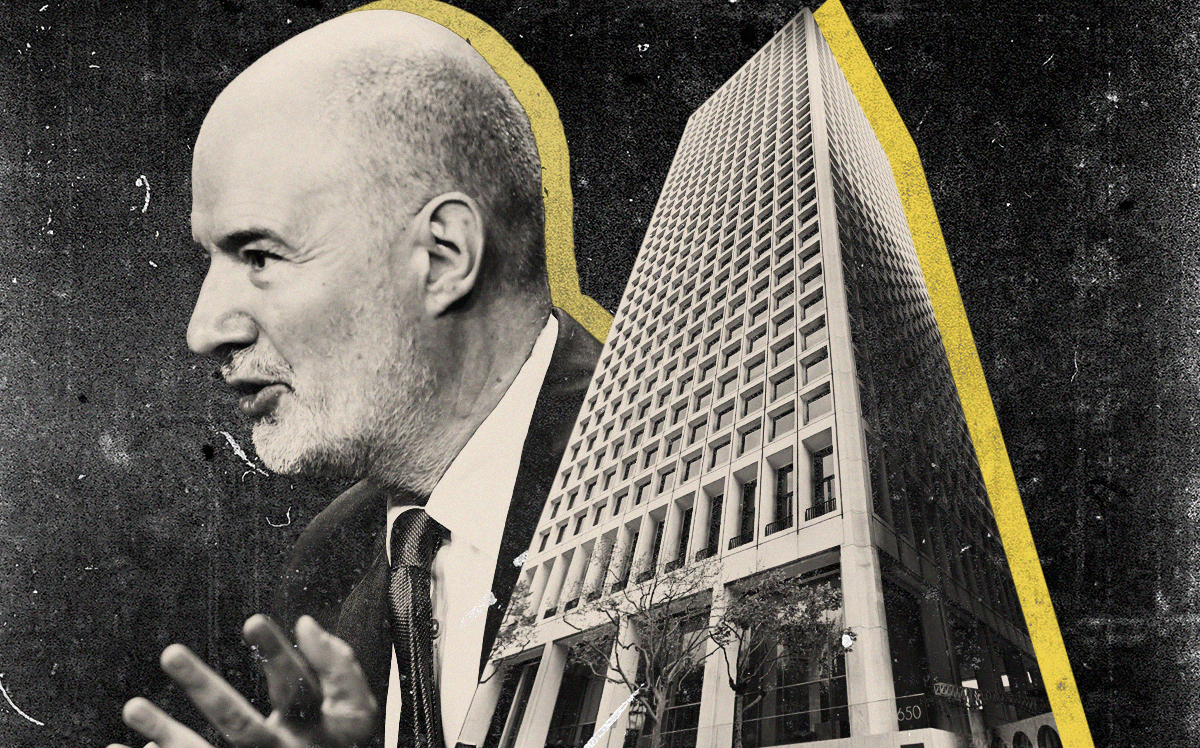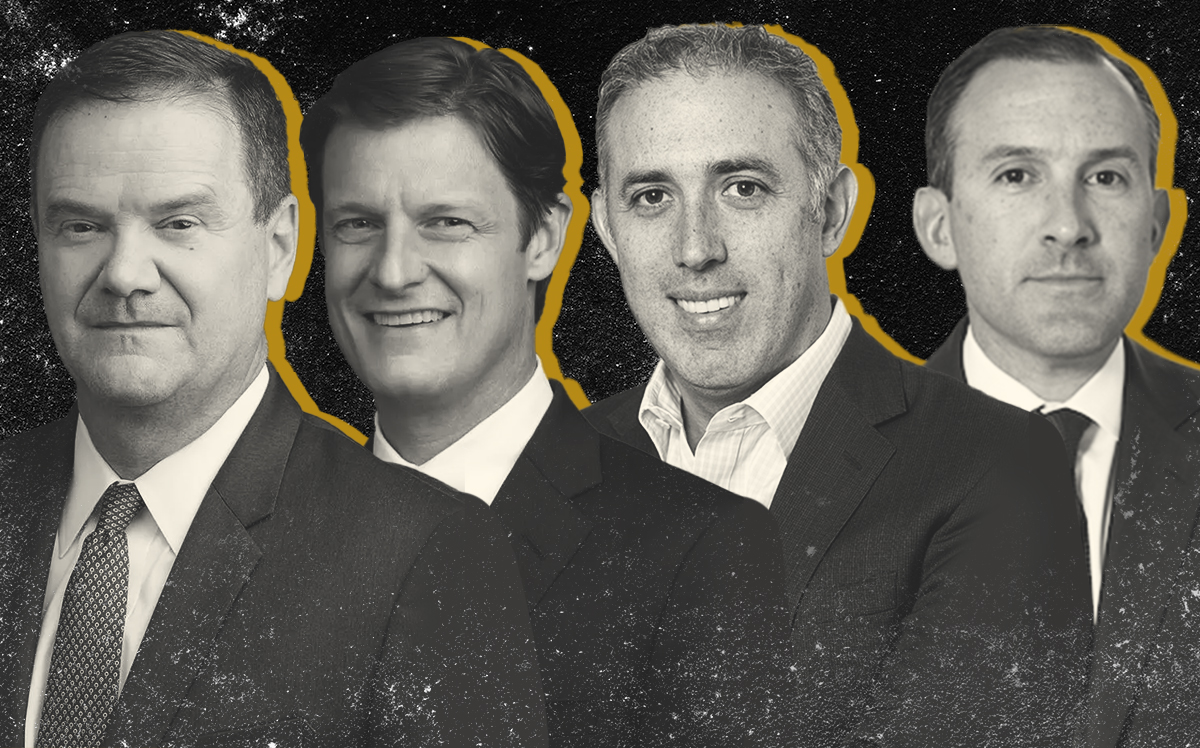The double pincers of higher interest rates and lower office vacancy have put landlords in a pinch, as illustrated by Brookfield’s decision to walk away from $784 million in loans connected to two of the firm’s trophy office towers in Downtown Los Angeles.
Earlier this month, the Canadian alternative asset management firm admitted it had defaulted on both sets of loans. With other property owners facing the same set of macroeconomic forces, Brookfield represents a bellweather of where the office market is heading, with financial details provided by the company’s public filings and other documents.
At 777 South Figueroa Street, Brookfield’s publicly traded DTLA entity defaulted on a loan package from Wells Fargo after it declined to obtain an additional rate cap on the loan. Brookfield also defaulted on $465 million worth of loans from Citi Real Estate Funding and Morgan Stanley at the Gas Company Tower at 555 West 5th Street, after declining to extend the loans.
Brookfield saw the defaults on the horizon. In November, the company disclosed it “may not be able to successfully refinance the debt obligations when they fall due, which could result in foreclosure on the encumbered properties,” in light of economic uncertainty and lackluster leasing volume.
Though no foreclosures have been filed yet, lenders on both loan portfolios have the legal right to do so.
Brookfield’s own disclosures show the firm was not reeling in enough rent to cover its debt payments by the end of December, after the Federal Reserve had hiked rates seven times. Filings also show how the firm struggled with vacancy at both properties, as some tenants vacated space last year. And refinancing the debt at current higher interest rates would only exacerbate cash shortfalls at the properties
Here’s a look inside Brookfield’s financials at both properties and how rising interest rates impacted their profitability.
Gas Company Tower
In 2019, Brookfield obtained a two-year, $465 million loan package on the Gas Company Tower at 555 West 5th Street in Los Angeles.
The $350 million senior mortgage on the loan held an interest rate of Libor plus 1.89 percent, according to SEC filings.
The mezzanine tranches held much higher interest rates — $65 million at Libor plus 5 percent and $50 million at Libor plus 7.75 percent.
Last February, the firm would have paid interest at a rate of 1.97 percent on the senior loan, leading to a monthly interest payment of $551,000. On the mezzanine loans, Brookfield would have been paying 5.08 percent for the first loan and 7.83 for the second, coming out to a total of about $601,000 a month in interest.
Together, their debt service last February would have cost about $1.15 million a month in interest.
By December, the senior loan held an interest rate of about 5.89 percent, with monthly payments coming out to $1.7 million.
With the monthly interest payments on the mezzanine loans, the total debt service in December came out to about $2.7 million — more than double its payments just a few months prior.
At the end of September, the Gas Company Tower was about 73 percent leased — no change from the prior quarter, according to SEC filings.
The company reported $27.3 million in yearly base rent at the tower, or about $2.3 million a month — not enough to cover the new debt service payments.
777 South Figueroa Street
In February 2022, Brookfield held a $243.6 million senior loan on 777 South Figueroa Street, one of its trophy office towers in Downtown L.A.
The five-year loan had an interest rate of Libor — a benchmark interest rate used by banks — plus 1.8 percent. At the time, it was a very low spread: that month, Libor was 0.08 percent. So the loan had an overall interest rate of 1.88 percent.
Given that rate, Brookfield would have been paying about $381,600 in interest a month to service the debt.
Come December, the calculations were very different. The Fed’s interest rate hikes during 2022 raised Libor to about 4 percent in December, meaning Brookfield’s interest rate on 777 South Figueroa Street increased to 5.8 percent.
With the new rate, Brookfield would have been paying more than $1.1 million in interest per month.
Brookfield also held a $50 million mezzanine loan on the tower, which held an interest rate of Libor plus 4.15 percent.
By the end of last year, that loan held an interest rate around 8.15 percent, bringing Brookfield’s monthly payment to about $339,600 from about $175,800 at the start of the year.
In total, by the end of the year, Brookfield was paying about $1.45 million a month to service the debt.
And Brookfield was losing rent income at the same time.
Tenants vacated about 84,000 square feet at the 777 Tower from January through September, causing the vacancy rate at the property to rise from 19.5 percent at the end of June to 26.9 percent, according to SEC filings.
That added vacancy lost Brookfield $2.1 million in total base rent a year on the tower, SEC filings show.
At the end of September, Brookfield was reeling in $20.5 million in annualized rent — or about $1.7 million a month, also not enough to cover the debt service after property management expenses and taxes.
Law firm Orrick Herrington & Sutcliffe vacated about 76,000 square feet between June and September — the largest exit across Brookfield’s DTLA portfolio, SEC filings show.
City Storage Systems — the parent company of disgraced Uber CEO Travis Kalanick’s new ghost kitchen venture, CloudKitchens — vacated almost 6,000 square feet, but renewed 39,000 square feet at the tower in the first half of the year. Aspen Insurance Services also exited 4,600 square feet in the third quarter, according to a November SEC filing.
The loans came due on Feb. 9. Brookfield said it did not exercise any option to extend the maturity of the loans, triggering the default. “An event of default has occurred” the company stated, adding that “lenders may exercise their remedies,” including foreclosure.
Read more



